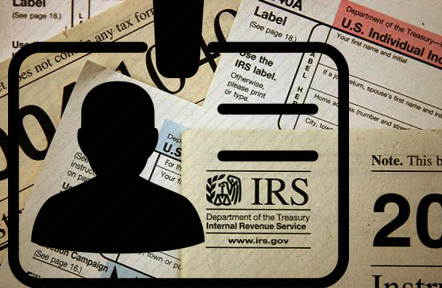Remember the Alamo... and Discover New Texas Resources with Land Commissioner Jerry Patterson
 With the recent news about the defacing of the Alamo, I looked into how the Alamo resources are managed. I learned that the Alamo now falls under the jurisdiction of the Texas General Land Office and Land Commissioner Jerry Patterson. Commissioner Patterson sat down with me to talk about this iconic emblem of all that is Texas and other important issues facing his state agency.
With the recent news about the defacing of the Alamo, I looked into how the Alamo resources are managed. I learned that the Alamo now falls under the jurisdiction of the Texas General Land Office and Land Commissioner Jerry Patterson. Commissioner Patterson sat down with me to talk about this iconic emblem of all that is Texas and other important issues facing his state agency.
Patterson, a well recognized expert in Texas history, is rightly proud of his new responsibility to manage and maintain the Alamo alongside the legendary Daughter's of the Republic of Texas. During the interview we also discussed the issue of border security and how the theft of Texas' natural resources along the border is depriving the state of much needed revenue for education.
Also news in this video is a discussion of a new find of valuable heavy metals in West Texas. Prior to this find, China had a near monopoly on these metals which are being used in more highly efficient rechargable batteries used in laptops, cell phones, cameras, the electric car and more importantly, many other items important to our national security. This new find could help generate significant income for Texas and reduce our nation's security dependence on China.
TexasGOPVote's Bob Price and Land Commissioner Jerry Patterson
We also discussed energy independence for Texas. During last summer's record heat wave, wind energy from the Coastal Bend area helped save the day and keep our electricity grid alive. According to Patterson, both water and electiricty are going to be critical issues as Texas continues to be successful in both economic and population growth.
Please come back for future interviews with Commissioner Patterson as we explore more of the functions of the General Land Office and the work the Commissioner is doing for the taxpayers of Texas.
Related Articles:
Hands Off Texas! Rally Video and Petition
TRANSCRIPT OF VIDEO
TexasGOPVote Blogger Bob Price: Commissioner, welcome back to TexasGOPVote, we're glad to have access and be able to talk to you again.
Texas Land Commissioner Jerry Patterson: Absolutely.
Price: I understand that you've had a little bit of a change in your job as Land Commissioner and you're now the manager, for lack of a better word, of the Alamo.
Patterson: That's right, I guess the Land Office must be doing something well because we apparently developed a reputation as the agency you can send things that need some help, and the Legislature last session made us the responsible state agency for the Alamo, and they directed us to work out an arrangement with the Daughters of the Republic of Texas, the DRT. They have been managing the Alamo since the early 1900s and doing a pretty good job, but the Alamo is now at the point where it needs a little more than what the DRT is able to provide. In the Land Office, we have engineers, we have construction skills, we have legal skills, we have financial skills, so we're really close to working out an arrangement with the DRT to manage the Alamo while still utilizing the services of those ladies who have preserved this iconic treasure for over a hundred years.
Price: As a connoisseur of Texas history, that must be quite a thrill for you.
Patterson: It's fantastic. Still to this day, having grown up on Davy Crockett played by Fess Parker and all that, some of which was not historically accurate, still do this day, I tear up when I read and view some of the evidence of history in San Antonio and the stuff in our archives. You know, it makes the hair on the back of your neck stand up.
Price: Well it reminds me of something I've heard you talk about before, that Texas has a very severe illegal immigration problem, and it's been around for quite some time.
Patterson: Yeah, we have a long history of illegal immigration in Texas, as a matter of fact, the first illegal immigrants were people who many of them looked like me, blue eyes, brown or blonde hair. When Texas was part of Mexico, to come here lawfully, you came here being sponsored by an impresario, such as Stephen F. Austin. If you didn't come sponsored by an impresario, you were an illegal, and many folks, instead of the crossing of the Rio Grande, which we think of today, were crossing the Sabine and the red River, coming here illegally, not being sponsored by some of the impresarios of the time. So I always like to describe, well this is nothing new, it just changes what river we're crossing. But, you know, we have documents in our land office of these archives that are really on point. One of the dockets we have is the register, registro, of Stephen F. Austin, it's a leather-bound volume, very large, that was penned in the 1820's by Stephen F. Austin, he signed the entry Estefan, it's handwritten in Spanish by Anglos, and they had only been here a short time, and they knew that if they were going to succeed in commerce in Texas in the 1820s, they had to speak, read, write the language of ours, which was Spanish. There's a lesson for today. If you want to succeed in commerce in Texas today, you need to read, write, and speak the language of commerce, which today is English. What was applicable in the 1820s is applicable in 2012, it just happens to be a different language. We have another wonderful document. It's a board of land commissioners of the Bexar District, Bexar County, where those who had served in our army went to report their service to prove up their service to get their entitlement to land, and we have names on there like Juan Seguin. He was a hero of San Jacinto, he had been at the Alamo, he was ordered to leave, he showed up at San Jacinto and helped against Santa Anna, and on the same page, we have Davy Crockett, of course he was dead, but he was signed in by his son Robert, and they were there to prove up their service. There is a column at the top that says nativity, if you go down there, we have Tejanos and Texians. Everywhere it said Tejano, it said native. Everywhere it said Texian, such as Crockett, it said immigrant. We were the first immigrants, and we were the first illegal immigrants.
Price: Well today of course, we have what may perceive as a very serious problem with illegal immigration. One aspect of that that doesn't get touched on I don't think is, I've heard you talk about this, is basically no man's land that was created down there and its impact on our resources.
Patterson: Well, you know I'm responsible as Land Commissioner for state minerals. We have some along the Rio Grande Valley along the boundary. We have a serious problem with theft of product, whether it's oil or condensate, much of that are on leases where we have a multi interest, so they're in effect stealing from the school children of Texas because our multi interest in dedicated to the schoolchildren of Texas and on those very remote leases, we have criminal activity, whether it's stealing a product, as I mentioned, drug running coyotes, taking illegals back and forth. The law enforcement down there is spread thin, or in some cases, not too cooperative. So that's a national security problem. We think of immigration and border security in some area, but we don't think about what we're losing in one of our resources and that is oil and gas production. As a matter or fact, we've had oil stolen from Mexico. In Mexico, you just put a drill into a pipeline and put it in a truck and they'll drive it and sell it in the U.S. Then we have stuff that's stolen from the U.S. that's sold in Mexico. There's a lot of criminal activity and it's dangerous and it's a national security issue. In the Land Office, we're putting a task force together to try and come up with a state solution for that using DPS and Rangers and oil and gas companies the Land Office and the Railroad Commission. We hope to be announcing something on that in the next couple months.
Price: I'll look forward to talking to you about that when you get to that point. You're also speaking of natural resources, I understand that Texas is now positioned to have an economic impact in some new findings. Tell us about that.
Patterson: Texas is 172 million acres, that iconic shape you're familiar with. I manage, and the Land Office manages, about 13 million acres, not all of that is surface, most of it is minerals or submerged, but we have a tract in Hudspeth County near Sierra Blanca that has heavy metals, and there are two kinds of heavy metals. One is the more desirable, more rare, and China has almost a monopoly on rare heavy metals. We have found heavy metals in sufficient quantities in Texas that would be a tremendous impact on our security. Heavy metals are used in batteries, high tech batteries, we talk about electric vehicles, the batteries are the problem with electric vehicles, even in your Blackberry to your i-whatever, these heavy metals are needed in missile guidance systems, national defense, electronics, and the fact that China has had almost a monopoly on it, and we now believe we have deposits in far west Texas that could change the national security picture and generate tremendous amounts of royalty for the state of Texas.
Price: That's exciting! What's the timeline on developing that?
Patterson: We think they could be in production within two years. It would change the landscape on a very crucial mineral that's needed for our future and our national defense.
Price: One last thing that we had talked about earlier, energy in Texas and whether we have enough energy in Texas. Can you talk a little bit about what happened during the drought last Summer, the heat wave and how we were able to sustain our grid?
Patterson: We have a couple of things that are pressing issues in Texas, and I'm running in the Republican Primary, and in the Republican Primary, we talk about a lot of issues that are very important to me. I'm pro-life, I'm pro-Second Amendment, we talked about all those things, they're extremely important, but there are things we are not talking about. The availability of water for our continued population growth, the availability of energy. We came close in last August to what we were going to have rolling black outs in Texas or brown outs. We have an issue with energy generation and transmission. We need to be talking about those things. The water, the drought, actually affects the generation of energy because you need cooling water, so we need to start looking at how do we manage the water resources we have, whether it's ground water, whether it's surface water, inter basin transfers, usage in ground water, conservation is a big part of it, and then how do we ensure that we have enough electricity to meet the growing economy in Texas. We peaked at 68,000 Megawatts peak demand last August second or third. We're getting very close to where our peak demands are close to our peak capacity to generate, and that's something that we're not talking about. I mean I know it's not the sexy issue that gets everyone going in the Republican Primary, but it's things that leadership, which are things that Republicans should be able to do, which is what I have experience doing in the Marine Corps as an officer, in the Senate, and as Land Commissioner, we need to start talking about many more issues than we're talking about today.
Price: And I think you mentioned an alternative energy resource that was actually instrumental in helping us keep our power.
Patterson: Yes, we as Republicans are advocates of a market based economy and not picking winners and losers and we frequently malign some of the green technologies out there, but last Summer in August, were it not for wind power that went to producing along the coastal bend in San Patricio and Nueces, those counties down there, we would have had blackouts in Texas because the wind in August in the afternoon was a tremendous benefit to maintain our generation capacity on the grid. Were it not for wind, you would have had your lights going out.
Price: Well having grown up in Rockport, I can attest to that steady wind.
Patterson: You know the Coastal bend. That's why they have all the sailing races down there. Yeah, so it was a big factor.
Price: Well Commissioner, thank you again for taking the time and giving access to the readers of TexasGOPVote. Is there anything else that you'd like to say today before we conclude this?
Patterson: Well, I hope the folks in Texas will learn more about what I do at the Land Office and all the things that we're involved in. It's the greatest gig in Texas. I have people that work for me that make even me look good.
Price: Well I don't think that's very hard to do, but thank you very much for your time, and I look forward to following your campaign very much as it develops.









Comments
Facebook Comments
Make sure to check out the comments on Facebook.